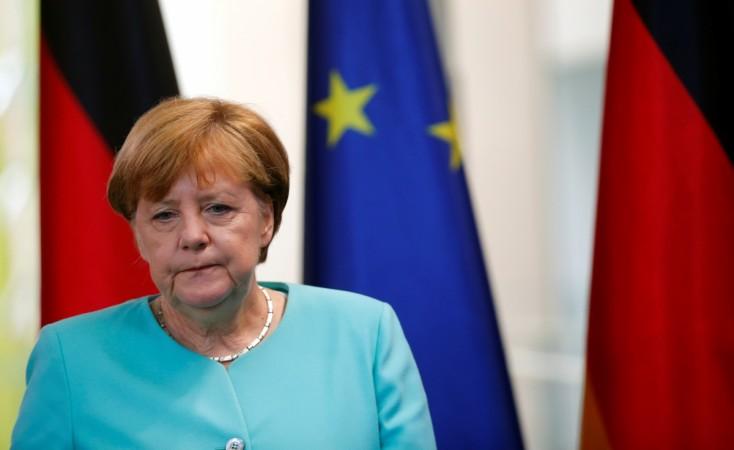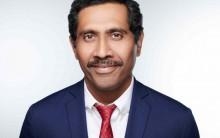
All attention on the geopolitical stage is now centred on Germany and the dramatic success of the far-right Alternative for Germany (AfD) in the recent polls. Having captured 13 percent of the vote, the party which was a mere noisy blip on the scene has made it to the Bundestag where it is the third-largest party!
Political pundits now point to chancellor Angela Merkel's liberal policy towards migrants as the main tipping point that sent a large section, over a million, of the population towards the radical AfD. Known for its hatred towards Muslims and migrants, and its thinly veiled pride in the Nazi past, the party was never credited with being capable of such success.
While the new government will mostly be one of a forged alliance between Merkel's CDU, the Free Democrats and the Greens, experts predict AfD will make running the Bundestag a tough job.
A pre-election poll shown on BBC had thrown up some indication of this unexpected outcome. Many respondents spoke of a feeling of neglect, a 'loss of voice' under Merkel's benevolence towards migrants. That and a fear of loss of local culture was something voiced by many of the Germans interviewed in the television programme. Some went a step further to say that yes, the fertility rate of the locals was low and hence reproduction an issue. But no, we do not want help from Islam to further our population!
The Berlin wall may be down but more forbidding walls are rising.
Whether it be the triumph of Trump in the US or Modi in India, it is a similar feeling of resentment among the majority local sections that has benefitted the leaders. A similar perceived feeling of threat to local culture, a sense of neglect, a need to safeguard one's belief system has been cited as reasons for the right wing to emerge victorious.
A recent webinar saw eminent spiritual spokespersons Deepak Chopra and Eckhart Tolle (author of 'Power of Now' and other bestsellers) address this divisive virus now spreading across the globe.
Both agreed that conflicts and divisiveness, though seeming to be on the rise now more than ever before, has always been there. It is merely the rise of social media and awareness that has spurred the debate in recent times. With social media, the atmosphere has been further vitiated because it is easier to spew venom on an unknown person on the computer screen who is reduced to a few words or constructs.
No matter what you say and how rational you may be, once a person or group or community has taken a side, it does not matter. They have taken the other side and simply refuse to even hear you through patiently.
Isn't that exactly what we are finding today in our society? A person or group with a certain alignment or identity simply stick on to that with tenacious claws. Our minds refuse to acknowledge a truth beyond what we have decided to stick with. Our viewpoints have become our sense of identity, as Tolle pointed out. This is exactly what the ego wants, to nurture a sense of separateness, of divisiveness to enhance itself.
A party like AfD is against globalisation and integration exactly for this reason. The sense of a separate people, of an 'enemy', is what the ego feeds on to feel important.
This sense of perceived threat is what translates to clashes between language groups in India. Cinema halls showing films of another state get stoned. Metro train signages get blackened because it belongs to the 'enemy'.
A raising of collective consciousness of this deceit by the ego is what is needed today, the two leaders agreed. This can come from an awareness of how to distinguish oneself from one's viewpoint.
A viewpoint or perspective is based on one's experiences or mental constructs over the years. This definitely is not who we are. A sense of self is beyond concepts, said Tolle. The reality of one's existence is beyond mental words or constructs and concepts. It is in recognising our common origins, our sameness rather than differences. Giving the example of love, he explained how love for another is simply the realisation of the oneness of two people, or the feeling when one sees oneself in another.
The challenge after accepting this spiritual truth is to be able to sit across the table and talk to people differing in views from ours. Obviously, this does not mean the radicalised opponents who will simply scream across the panels a la Arnab Goswami show. It is the millions caught in between and willing to listen who could make the difference.
The social media more than anything needs conscious people, agreed the two authors. Finally, rather than complain about troubling times, we must use the challenge to awaken ourselves.
Can we, is a moot question. See beyond our identity with a religion, nation, colour, caste, politics and so on. Or, as Chopra voiced a doubt, is spirituality not able to keep up with technological capabilities? With nuclear warfare and deadly virus ready to be unleashed on the 'enemy', can spirituality hope to win the day?















